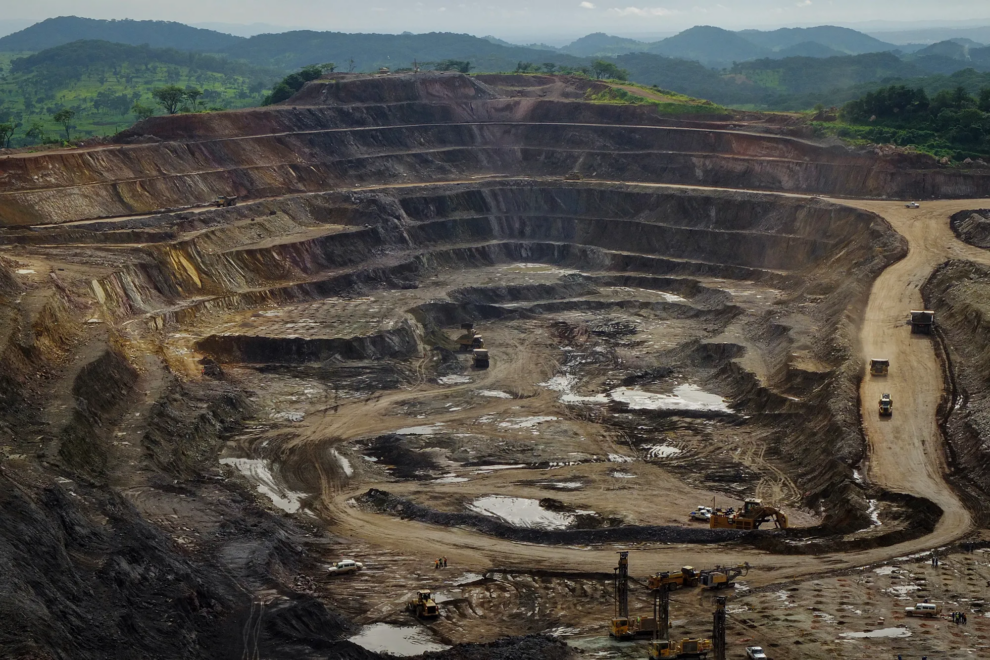In the deserts of Chile, the Australian outback and the plains of the Democratic Republic of the Congo, the earth is being peeled back and the water sucked up and dried out to find the minerals needed to feed the world’s need for electric cars.
The scars left on the earth by the search for battery minerals are regularly trotted out by opponents of the transition away from fossil fuels. But in our EV mythbusters series, we are taking a closer look at some of the most common criticisms of electric cars, highlighting the myths, the realities, and the grey areas.
The first in our series asked whether we should be more concerned about fires in electric cars. This article asks: do electric cars have a mining problem?
The claim
The extraction of battery materials is due to expand on a grand scale. That will leave a trail of mining – often with local environmental degradation – in its wake. The rightwing politician turned pundit Nigel Farage last month wrote of electric vehicles’ “nasty secret” and the “strain” on the environment from mining for minerals used in electric cars.
Beyond the environmental impact, there is also the issue of child labour and exploitation of artisanal miners, which is rife in some parts of the DRC at cobalt mines, according to reports by the human rights group Amnesty Internationaland others.
A recent headline in the Daily Telegraph newspaper claimed: “Electric cars are made of pollution and human misery.” A Washington Post headline claimed the electric vehicle transition was driven by “blood batteries”.
The science
Mineral demand for heavy batteries will grow rapidly. The International Energy Agency estimated that electric cars use 173kg more minerals such as lithium, nickel and copper than petrol cars (when ignoring steel and aluminium). The data company Benchmark Mineral Intelligence forecasts global demand for lithium, the key battery metal, will quadruple to 3m tonnes in 2030, outstripping supply.
Yet overall, the mineral use for electric cars is much, much lower than petrol and diesel as soon as oil enters the equation. Transport & Environment (T&E), a Brussels-based thinktank, found that a petrol car will burn an average of 17,000 litres of oil in its lifetime – about 12.5 tonnes.
And most criticisms of electric cars’ mineral use miss a hugely important point: the majority of battery materials used in cars are likely to be recycled. That will drastically cut down the amount of wasted material compared with fossil fuels which disappear invisibly but harmfully to heat the planet.
David Bott, the head of innovation at the Society of Chemical Industry, said: “The real thing people forget is once it has been mined, you will end up being able to reuse 80-90% of the metals. You don’t have to go back to the planet to steal more minerals.”
T&E’s data suggests that after recycling, battery material waste over an electric car’s life will be about the size of a football, or 30kg, by 2030. That figure does not include any fossil fuels burned to generate electricity, meaning the true real-life mineral toll will be higher than 30kg until countries have decarbonised their electrical grids completely.
Julia Poliscanova, T&E’s senior director for vehicles and e-mobility, said: “By 2030 we will need around 30m tonnes of critical minerals [for batteries]. It’s very, very substantial, but if we put this in comparison, we used in one year 15bn tonnes of fossil fuels.”
Auke Hoekstra, an energy transition researcher at the Eindhoven University of Technology, said that about 0.1% of the Earth’s habitable land is used in mining, but less than 0.01% was used for battery minerals. That still includes vast amounts of material, including 130,000 tonnes of lithium, according to the US Geological Survey. But that is dwarfed by other materials: there were 2.6bn tonnes of iron ore mined for steel in 2022 and 4.4bn tonnes of oil.
For fossil fuels “the sheer amount of material we need to get out of the ground is bigger and everlasting,” Hoekstra said. “At least with batteries you have a chance of making it circular.”
Any caveats?
There can be no doubt that many of the world’s resource supply chains hide shocking human rights abuses. Mobile phone brands such as Apple and carmakers like BMW are cutting down cobalt, mapping supply chains and setting up “battery passports” to show consumers what is in their batteries.
Mark Dummett, the head of business and human rights at Amnesty International, co-wrote one of the first reports exposing child labour in the Democratic Republic of the Congo. Yet he argues that there is no special problem with the battery industry; he has also seen first-hand alleged human rights abuses associated with the extraction of oil in the Niger Delta.
“These problems have always existed in mining,” Dummett said. “I strongly believe that this problem has been exaggerated hugely by opponents of the energy transition, the fossil fuel lobby.”
And the alternative will not mean less mining. Caspar Rawles, the chief data officer at Benchmark Mineral Intelligence, said: “It always makes me laugh. OK, the mining of EV [materials] is harmful. Where do you think your car now comes from?”
The verdict
The data we have leaves little doubt that resource extraction will be significantly lower for electric cars compared with their petrol or diesel equivalents as recycling increases. And neither do the green credentials of electric cars absolve the buyers of battery minerals of responsibility for abuses in the supply chain. Dummett said he hopes the mining industy will “use this moment to reform itself”.
Source: The Guardian
















